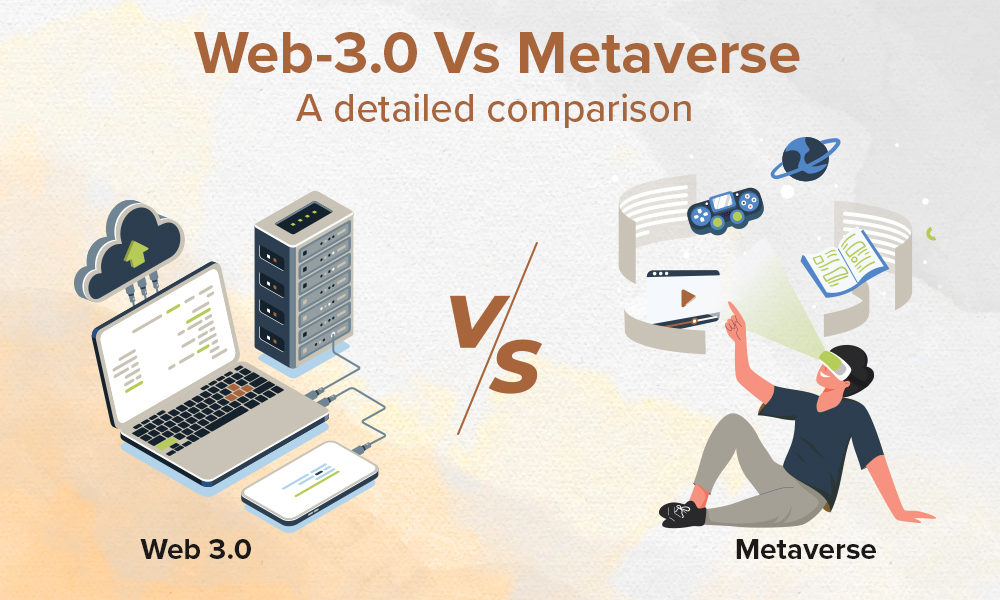“Blockchain” as a search term has now become more popular than “cryptocurrency.” As people understand the potential of the blockchain, they are trying hard to understand all the aspects of this disruptive and emerging technology. Gartner reports, blockchain has seen an increase of up to 400% as a search term at its platform in the last year. As blockchain started getting popular, tech giants like Amazon, Microsoft began to look for ways they can increase their revenues from capitalizing the potential of the technology.
Blockchain as a Service: The Definition
Considering blockchain is an emerging technology, businesses don’t understand the technical complexities of it; moreover it is difficult to hire resources to manage the development and operations. These issues opened up new avenues for software and technology giants to build solutions to help enterprises adopt the technology with ease. The term ‘Blockchain as Service’ came into existence in the year 2015, when Microsoft introduced Ethereum blockchain as service (EBaaS) on Microsoft Azure. With BaaS coming into the picture, businesses and industries were able to develop, host and utilize their own blockchain applications, smart contracts, and functions from cloud-based solutions. The cloud-based service provider for e.g., Microsoft as BaaS provider is managing all the necessary tasks and activities related to the development and keeping the process agile and operational.
Top BaaS platforms offering cloud-based solutions
From public to private blockchains like Ethereum and Hyperledger, tech giants have built BaaS offerings to help established businesses, as well as start-ups, adopt the technology. However, this ecosystem is already getting crowded, and enterprises need to make informed decisions to take full advantage of the offerings. Here’s a list of the top BaaS platforms:
- Microsoft Blockchain on Azure
Microsoft Azure is a Blockchain as a service platform based on Ethereum Proof-of-Authority algorithm for developers to build DApps quickly. It comes with a set of solutions that users can deploy and configure any of blockchain network with minimal Azure and blockchain knowledge like smart contracts.
- IBM Blockchain Platform
IBM Blockchain platform is an advanced solution that offers blockchain software, services, tools and codes to help users manage a working blockchain network and accelerating the creation of blockchain applications in a variety of cloud environments.
- Blockchain Cloud Service by Oracle
Blockchain cloud platform by Oracle enables customers to leverage a variety of benefits of blockchain being a secure and distributed ledger. It allows run smart contracts, sharing data and conduct trusted transactions with suppliers, banks, and other trade partners. It comes integrated with cloud services or new services offered by Oracle.
- AWS Blockchain Templates
AWS Blockchain Templates provides a fast and easy way to create and deploy secure blockchain networks using popular open source frameworks. With the help of the framework, you can build applications quickly instead of spending time and energy on manual setup of your blockchain network.
How does BaaS work?
Let’s understand how BaaS works with an example. You have a flourishing retail business and now wish to take it online. The first and foremost thing you need is a website. So, you build a website and push it online with the help of a web hosting provider like Amazon Web Services. Moreover, you are going to manage the website as and when your business grows. Now with BaaS, you only decide that you need to build a website for your business, the website, however, will be developed, managed and scaled by a service provider.
How to Choose a BaaS Platform?
1) Rapid Provisioning: The platform should be able to rapidly launch the blockchain network in the business environment without any failure or extra infrastructure effort.
2) Integration with Backend Services: All the enterprise blockchain solutions need to be integrated alongside the current backend system and services. A Baas provider should be able to support out-of-the-box software and systems as well as popular cloud services that are currently popular in the business environment.
3) Security-Based on IAM Platforms: The primary need for blockchains to evolve to permissioned ones was to establish privacy in enterprise transactions as well as know the identity of peers in the network. Identity management integration in BaaS platforms, therefore, becomes a requirement to extend the security competences of the enterprise.
4) Smart Contract Deployment and Testing: Smart Contracts introduced by Ethereum have now become an essential aspect of blockchains applications. These are the main drivers of authorizing business logic in permissioned blockchains. However, as blockchains are immutable, the process of deploying and testing smart contracts is a complex task. Therefore, a BaaS provider needs to be capable enough to offer test/audit/version/deploy services for smart contracts.
5) Various Blockchain Runtimes and Frameworks Support: Most of the BaaS platforms support popular blockchains like Ethereum, Hyperledger, but just a few support corresponding frameworks and protocols which are common across permissioned blockchains networks. As an organization, one needs to adopt the BaaS platform with world-class support for public, private as well as hybrid blockchains. Also, the platform needs to offer corresponding extensibility mechanism.



.jpg)
